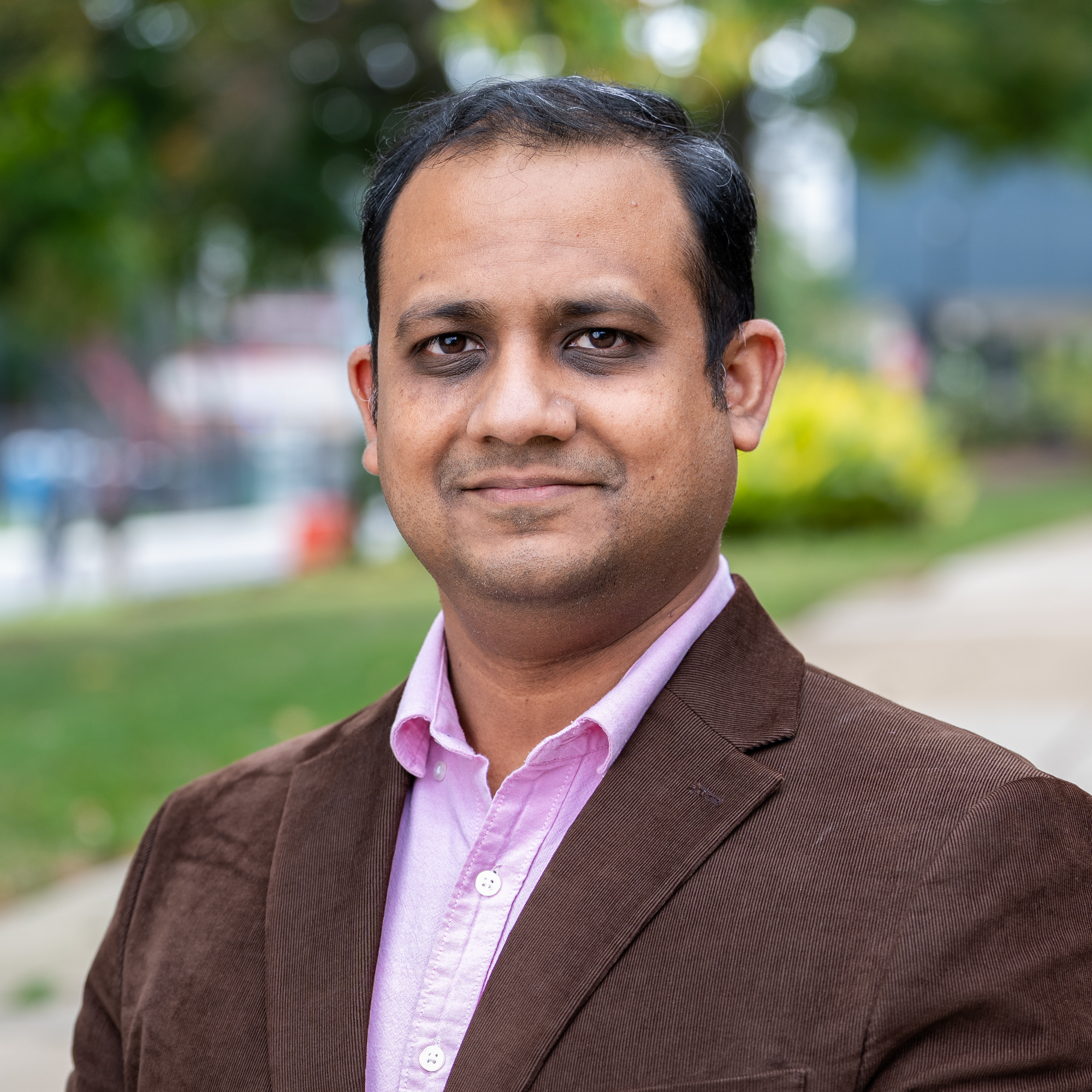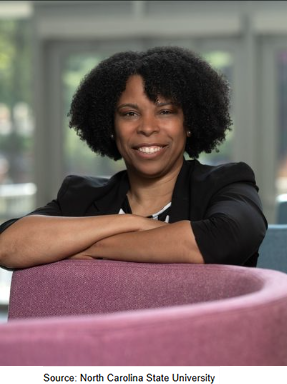
A Conversation with Dr. Deep Ray
Assistant Professor, University of Maryland Department of Mathematics
What inspired you to pursue a career in academia?
I have always felt at home in an academic environment where curiosity, innovation and lifelong learning take center stage, and it was these aspects of the job that also drew me towards a career in academia. As a professor, I greatly appreciate the freedom to work on problems that pique my own intellectual curiosity. Collaborating and exchanging ideas with my brilliant peers and working with remarkable students are among the most appealing aspects of this job. At the same time, I can still work with industrial partners on pressing real-world problems. I feel fortunate to have been in environments where my peers have respected and supported my intellectual pursuits.
What specific steps did you take to prepare for and pursue a career in academia?
Early on as a student, I knew I wanted to conduct research in numerical analysis and computational mathematics. Thus, I made sure that I complemented the mastery of key mathematical concepts with the necessary programming skills. This became even more pertinent when I ventured into research in scientific machine learning. In addition, consistently reading journal articles on emerging research trends and regularly attending research seminars and colloquia were formative steps. In fact, I would encourage students to also attend talks outside their area of expertise. This may seem counterintuitive, but a different perspective can be extremely effective in overcoming research roadblocks and finding out-of-the-box solutions when one is stuck.
What are the most rewarding aspects of being a professor, and what are some of the challenges?
One of the most fulfilling aspects of being a professor is teaching and mentoring students. It is quite gratifying when a student tells me that they found a course I taught to be valuable and insightful. It is also wonderful to watch my research advisees mature into independent researchers. Another advantage of being a professor is the flexibility to set the pace of my research schedule as per my liking. However, this can be a double-edged sword, as this flexibility often blurs the line between work life and personal life. As one climbs up the academic ladder, it also becomes challenging to balance time spent on research, mentoring, and the various administrative responsibilities. Furthermore, as one’s research agenda and group grow, one needs to pursue external funding rather aggressively.
Can you share any advice for students who aspire to become professors?
There are several important things to bear in mind for students aspiring to become professors. First, make sure that your mathematical foundation is strong. This will allow you to pursue a broad and varied research agenda. Try to submit papers early and have preprints available if papers are under review. This will demonstrate your research activeness as you prepare to enter the faculty job market. In your postdoctoral position(s), take care to establish yourself as an independent researcher, and develop the ability to identify relevant research problems to pursue. If you get a chance, get some teaching experience – this will demonstrate to hiring departments that you have the requisite teaching abilities. Finally, take every opportunity you get to present your research at workshops and conferences – this will give you the confidence to disseminate your research, help polish your communication skills, and improve your visibility in the academic community.
What are some important skills and qualities that aspiring professors should cultivate as they prepare for a career in academia?
There are three important pieces of advice I have for aspiring professors. First, try your best to be disciplined and organized from the very beginning – this will make it easier to balance the various responsibilities as a professor, while minimizing their encroachment into your personal life. Second, be prepared to expand your horizons and to change the flavor of your research as you move further down your career. This is particularly true if you are interested in computational mathematics, which is constantly redefined by emerging trends, such as AI. Finally, being a professor is sometimes like being an entrepreneur, where the onus is completely on you to define your research agenda, build your team, bring in funding, and ensure the timely completion of various goals.
What is something Math Department students might not know about you?
I am a big fan of horror movies and shows, even though they sometimes give me nightmares. I also love trying out exotic cuisines and food from different parts of the world.

Dr. Kimberly Sellers, Math '98
Head of the Department of Statistics, North Carolina State University
Could you briefly describe your current role and responsibilities?
As Department Head and Professor of Statistics at NC State University, I lead a department with approximately 50 faculty and staff and 500 students, including a nationally and internationally ranked graduate program further noted as the top producer of PhD graduates in Statistics. There are numerous responsibilities associated with this position, but it primarily includes leading the department through a strategic vision, representing the Statistics Department at the college and university levels (and beyond), and advocating to others in the best interests of the Statistics Department.
How have your career aspirations changed, or remained the same, since your time in the UMD Math Department?
This is actually a trick question. Having first joined the UMD Math Department as an undergraduate, I didn't know what I wanted to do with my degree except for a desire to pursue a PhD either in Mathematics or a mathematically-related field. I completed my B.S. and M.A. in Mathematics at Maryland, and I became interested in statistics while in graduate school.
At that time, my career pursuits remained somewhat open yet I always recognized the vast career opportunities available with such a background. After completing my master’s degree, I went to The George Washington University in Washington, DC and earned my PhD there in Statistics. For me, pursuing an academic career was arguably natural because of the training that I'd received in graduate school. Even still, I kept my options open and interviewed for opportunities both in the academy and industry that were available at the time, in order to make an informed decision.
I have greatly enjoyed developing my research and other academic interests through the years. I remained laser-focused on my trajectory to Associate Professor (with tenure) and Professor at Georgetown University. These were personal goals that I wanted to accomplish before any consideration towards a position in academic leadership. Attaining the title of Professor then motivated me to identify my next goal. I pondered how my academic career could move beyond research and teaching while still serving the academy.
What advice would you give to current students to find, secure, and thrive in an academic career?
Actually, I would argue that the most important advice for current students (whether or not they pursue a career in academia) is to become skilled in networking, marketing, communication, and self-advocacy. None of these skills are necessarily taught in the classroom, yet I have found that they play a significant role in finding, securing, and thriving in one's career. One needs to know how to explain one’s work and abilities to any audience, and explain why one’s work offers a significant advance to the discipline and/or the community. Meanwhile, networking is key because one never knows what relationships can develop into future career opportunities.
If you could go back, what might you change about your time as a mathematics student and your career path?
I would take (more) statistics courses earlier in my academic experience. I didn't take my first statistics course until my senior year as an undergraduate, and, even then, I wasn't yet "interested" in statistics. It wasn't until my second year in graduate school that I took the probability and statistics sequence (with Dr. Piotr Mikulski) that my love for statistics was ignited. That excitement and interest in statistics has only grown since then, and it continues to do so today! I've developed a wonderful community, thanks to my work and discipline.
How can one continue to develop professionally and stay competitive in their field?
I still conduct research as a Department Head. It's difficult to protect the time to engage with faculty and students, given my hectic meeting schedule, but I appreciate the patience of my collaborators.
What do you enjoy most about your current job, and what are your future aspirations?
As Department Head and Professor, I greatly enjoy having the ability to make such a positive impact in the lives of my faculty, students, and staff. I continue to explore how I can further influence, support, strengthen, and advance the linkages between the mathematical sciences and the other sciences within the academy and beyond. I am committed to training the next generation of statisticians and data scientists since statistics is instrumental to advances in technology and new frontiers in science. Leaders in the statistical sciences play an important role in fostering cooperation and collaboration with other disciplines to solve and create scientific, technological, or other pathways of particular importance to advance society.

|











 The University Career Center & the President’s Promise provides comprehensive career development resources to help students explore career paths, gain practical experience, and connect with industry professionals. The Center offers guidance on internships, job opportunities, and graduate school planning while supporting students in their job search strategies. Students are encouraged to utilize the Center’s
The University Career Center & the President’s Promise provides comprehensive career development resources to help students explore career paths, gain practical experience, and connect with industry professionals. The Center offers guidance on internships, job opportunities, and graduate school planning while supporting students in their job search strategies. Students are encouraged to utilize the Center’s 
